#VWGroup
VW CEO Says Audi and Porsche Will Be Joining F1
Audi and Porsche have been talking about Formula One for ages and it appears that the talk is finally being replaced by action. Volkswagen Group CEO Herbert Diess has confirmed that both will be entering F1 in the near future.
While the exact nature of their involvement hasn’t been explained, it’s assumed that Audi will be purchasing one of the existing teams while Porsche will become a purveyor of engines. Diess has only confirmed that the companies will be getting involved thus far.
VW CEO: 'We Have to Become Relevant in the U.S'
Volkswagen CEO Herbert Diess has explained that the automaker would very much like to get back in to the United States’ good graces now that it has cut ties with Russia. With the future of Europe looking shaky, VW is hoping to maintain its position as the best-selling brand in China and start making inroads in America after burning a few bridges there.
Despite the Dieselgate scandal being seven years in the rearview mirror, the automaker is still coping with the resulting financial penalties and the resulting decision to scale back its U.S. aspirations a tad until its electric models hit the road. But the company has always had an issue understanding what American drivers wanted, resulting in boom and bust phases for the company until it manages to solve the puzzle. The most common issue was an inability to adhere to ever-changing emissions standards. But there are also periods where the manufacturer was snubbed for offering subpar electrical equipment or simply having a lineup that was out of sync with American tastes. But Volkswagen has historically enjoyed a resurgence after making the necessary changes and Diess is hoping for another comeback.
VW Plans Mass Culling of Combustion Cars, Loftier Margins
Practically every automaker on the planet has begun signaling a desire to change with the times by collectively revising their business strategies. The new hotness involves lower volumes, higher margins, and electric vehicles with the ability to push connected services allowing manufacturers to charge you piecemeal for just about every feature imaginable.
While Volkswagen Group has been at the forefront of those trends since the 2015 Dieselgate scandal helped force its hand, it often suggested that the shift to EVs would be a boon to low-income families. It was hardly the only automaker to make such promises, nor has it been the first to break them after deciding that perhaps there’s more money to be made with premium vehicles. VW has decided that its ideal strategy involves culling internal combustion vehicles by 60 percent over the next eight years and focusing on higher-margin products yielding superior profitability.
Porsche IPO May Be Stalled Over Russo-Ukrainian War
Despite news that Volkswagen Group’s largest shareholder is eager to list the Porsche brand, rumors are swirling that the plan might be delayed over the conflict in Eastern Europe. VW and Porsche SE have openly shared their desire to launch the initial public offering (IPO) in the fourth quarter of 2022. However Porsche Automobil Holding SE’s finance head has suggested it might not be prudent if Russia is still occupying parts of Ukraine.
“We cannot rule out, if the conflict lasts a longer time, that this could have potential implications on the listing,” CFO Johannes Lattwein recently explained during a press conference held in Berlin, adding that no formal decisions have yet been made.
Volkswagen Shifting Production Out of Europe, Into U.S. and China
Volkswagen Group will be moving some of its European production out of the continent and into facilities located in China and the United States, citing the war in Ukraine as the largest contributing factor. Though if you’ve been following the company, it had already signaled a desire to raise its capacity in China ever since the region shifted into becoming its largest market.
In fact, Chief Executive Herbert Diess said during Tuesday’s press call that China will be taking precedence as the automaker reorganizes its manufacturing.
Audi Approved for $3.3 Billion EV Factory in China
Audi and FAW Group, the state-owned partner it is effectively required to have in order to preferential treatment from the Communist Party of China, received some good news this week. Government officials have approved the duo for a new, jointly operated production facility in Changchun.
With Volkswagen Group having shifted its focus toward China in recent years, the market has become all-important for the German company. VW is currently the top-selling brand for the entire region, with its Audi subsidiary typically being the highest volume premium automaker from Europe. Building in China is good optics for brands hoping to remain popular there and has the added benefit of placing manufacturing complexes closer to relevant suppliers, especially if you’re swapping to electric vehicles.
Volkswagen Passat Passes Away
The final Volkswagen Passat has rolled off the assembly line in Chattanooga, Tennessee, ending the model’s extended run on the North American market.
Designed by Giorgetto Giugiaro and introduced in 1973 using the VW/Audi B1 platform, the Passat arrived in the United States as the Dasher and was sold as a midsized luxury vehicle to people in the market for an imported economy car. The model carried different names in other parts of the world and even saw a few unique monikers used in the U.S. (e.g. Quantum) to help differentiate between the hatchback, sedan, and wagon variants sold throughout the 1980s. But it was officially known as the (B2) Passat by 1990, regardless of format.
Superlatively Stupid: Volkswagen Allegedly Changing Name to 'Voltswagen'
Volkswagen is either hellbent on destroying its brand appeal or we appear to be on the receiving end of an early April Fools’ prank because there’s a rumor going around that the automaker is going to be changing its name to “Voltswagen” to better encapsulate what an absolute cringe festival it has become.
Known best for offering unassuming but exceptionally nice to drive automobiles with styling that ages rather well, Volkswagen has been bending over backward to present itself as an EV manufacturer that’s chasing down all the latest trends. But your author is convinced that the initial feedback will be so overwhelmingly negative, VW will ultimately make some excuse and fall back to highlighting its more traditional aspects.
SEAT Positioned to Head Development on VW Group's Littlest EVs
Despite Volkswagen having snatched away MEB development duties planned for SEAT, it’s apparently happy to give the Spanish brand an opportunity to head projects for the MEB-Lite platform for the majority of VW Group. The resulting vehicles should all be compact battery electric or hybrid cars, and potentially very low in fat, sugar, or carbs based on the agreed-upon naming conventions.
Better still, Volkswagen has claimed these vehicles should begin arriving by 2025 yielding MSRPs below €20,000 — which is roughly $24,000 USD. We’re not willing to rule anything out for our market, especially given the segment is relatively new. But North America isn’t prone to receiving exceptionally small European imports, so don’t hold you’re breath if you happen to be living within the region and eager to buy an EV smaller than the I.D.4.
Teutonic Tesla: Volkswagen Now Building 'Gigafactories'
As much as we’ve criticized American luxury brands for emulating the Germans, we’ve failed to do the same for Volkswagen Group’s pathetic attempts at copying Tesla. That changes with Monday’s announcement that VW will assemble six “gigafactories” in Europe by 2030. Shared on “Power Day” — the company’s bastardized version of Tesla’s Battery Day — the plan is supposed to result in a production capacity of 240 GWh annually when completed and help VW reduce battery costs while also securing access.
It’s not a half-bad plan for a company entirely devoted to electrification, which is probably why Tesla follows a similar model using nearly identical terminology. Though, considering the absolute mess Volkswagen seems to have made of its EV transmission thus far, some might find it difficult to blame the automaker for looking at the competition and breaking out the notepad.
Others will be less sympathetic while acknowledging this is probably VW’s best play if it’s serious about EVs.
Family Man: VW's Chief Strategy Officer Abandons Ship for Smart Boats
Volkswagen’s strategy chief since 2015, Michael Jost (59), has announced that he will be departing after more than a decade with the company. While the cynics among us will undoubtedly jump to conclusions about the botched launches of VW Group’s new EVs and the all-important Mk8 Golf, the man himself claimed that his primary reason for leaving is to ensure the wellbeing of his family.
Jost confessed via his website that he’s only been spending weekends with his kindred since 1996 and would ideally like to make that a full-time position. A year under COVID restrictions apparently made the man reassess his life, resulting in his decision to abandon his demanding role at VW.
Pass the Chips: VW Group Demands More Semiconductors for Europe
Volkswagen Throws Down in Bid to Buy Navistar, Create Heavy Truck Giant
When they’re not preparing to sell an ultra luxury super car brand or creating a new line of electric vehicles, they’re planning a big time merger for a larger piece of the heavy-duty truck market.
It’s only gonna cost them a few billion dollars.
Audi Suggests Computing Power Will Decide Industry Winners/Losers
With regulatory bodies the world over forcing the automotive sector to prioritize efficiency over mightiness, industry rhetoric has gradually shifted away from the powertrain. While every brand still wants to squeeze out all available power from ubiquitous four-cylinder motors, providing excess is only a priority in a handful of cases catering directly to enthusiasts.
The idea of a big, brutish luxury car with a monstrous engine still exists, but it’s being supplanted by technology-driven features catering to tech-focused minds and the green movement. Modern luxury is based in connectivity, applications, and distancing one from the experience of driving altogether — or at least that’s what the automotive industry now seems to believe.
And they may have a point. While we’re well aware those advocating “mobility” desperately want it so that they can tap into your data (to enhance revenue using the same grimy business tactics favored by big tech firms), carmakers also need something shiny to dangle in front of consumers so we’ll buy the latest and greatest product. The tech sector is also booming right now, and the industry’s dying to get investors back on its side after seeing the Wall Street performance of EV companies — especially Tesla Motors.
Even the traditionalists at Toyota are buying into it, announcing an important push into software development as they attempt to craft the next industry-standard operating system for cars. It’s also the song Volkswagen Group has sung ever since Dieselgate. Meanwhile, Audi recently explained its own commitment to software after its parent company (VW) tasked it with ensuring the botched launches of the ID.3 and Mk8 Golf don’t become commonplace.
As Brand Goes Electric, Porsche R&D Head Says Tesla Not a Direct Rival
Now that Porsche has committed to Volkswagen Group’s plan for widespread electrification and manufactured its first purpose-built EV, many are starting to make comparisons with Tesla. Like it or not, Porsche’s Taycan is probably the closest competition the Tesla Model S has.
Porsche’s R&D boss, Michael Steiner, doesn’t like the comparison, saying any direct juxtapositions are apples to oranges — even if Tesla’s recent attempts to call out Porsche’s newest model seem contrary to this.



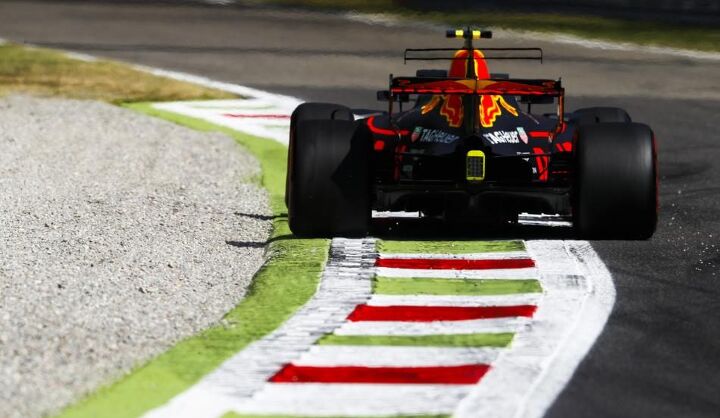

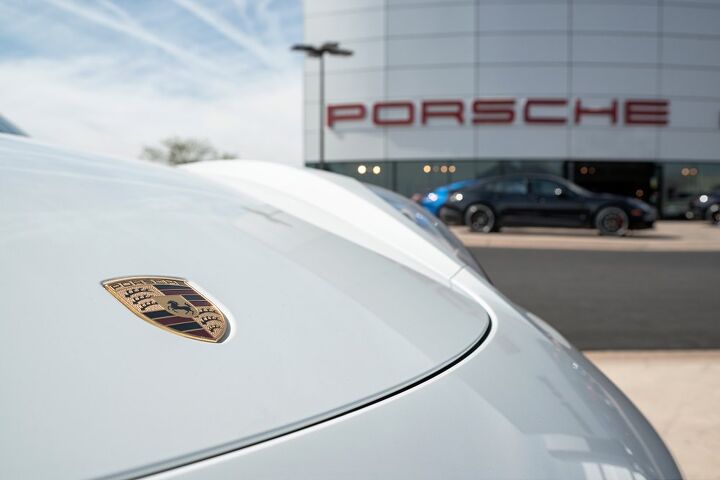

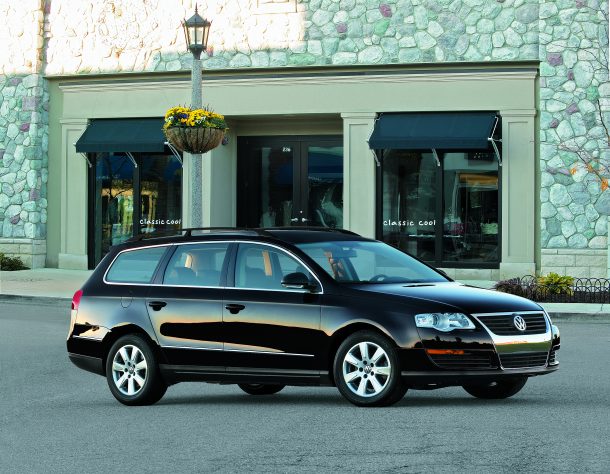

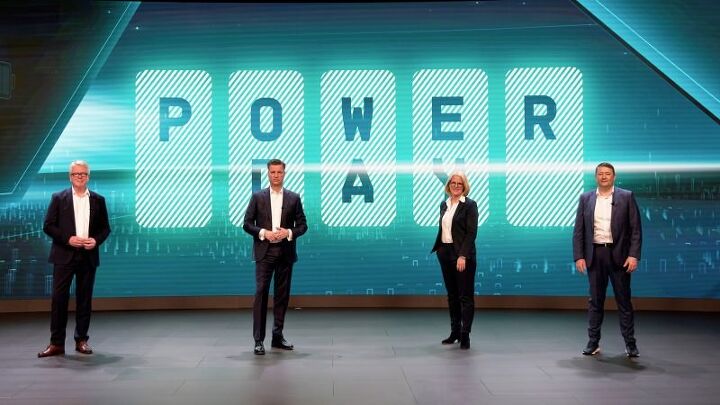



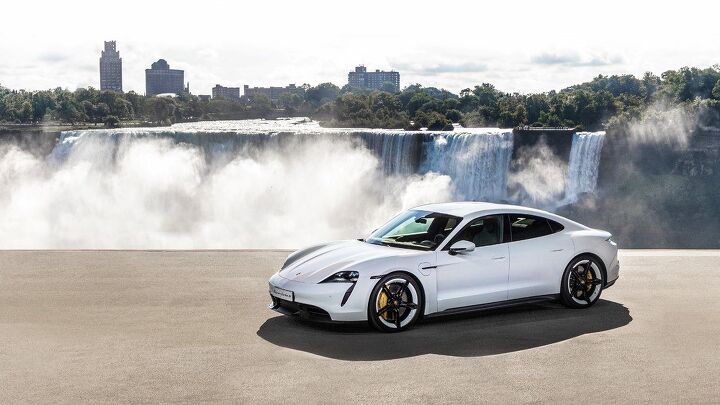












Recent Comments